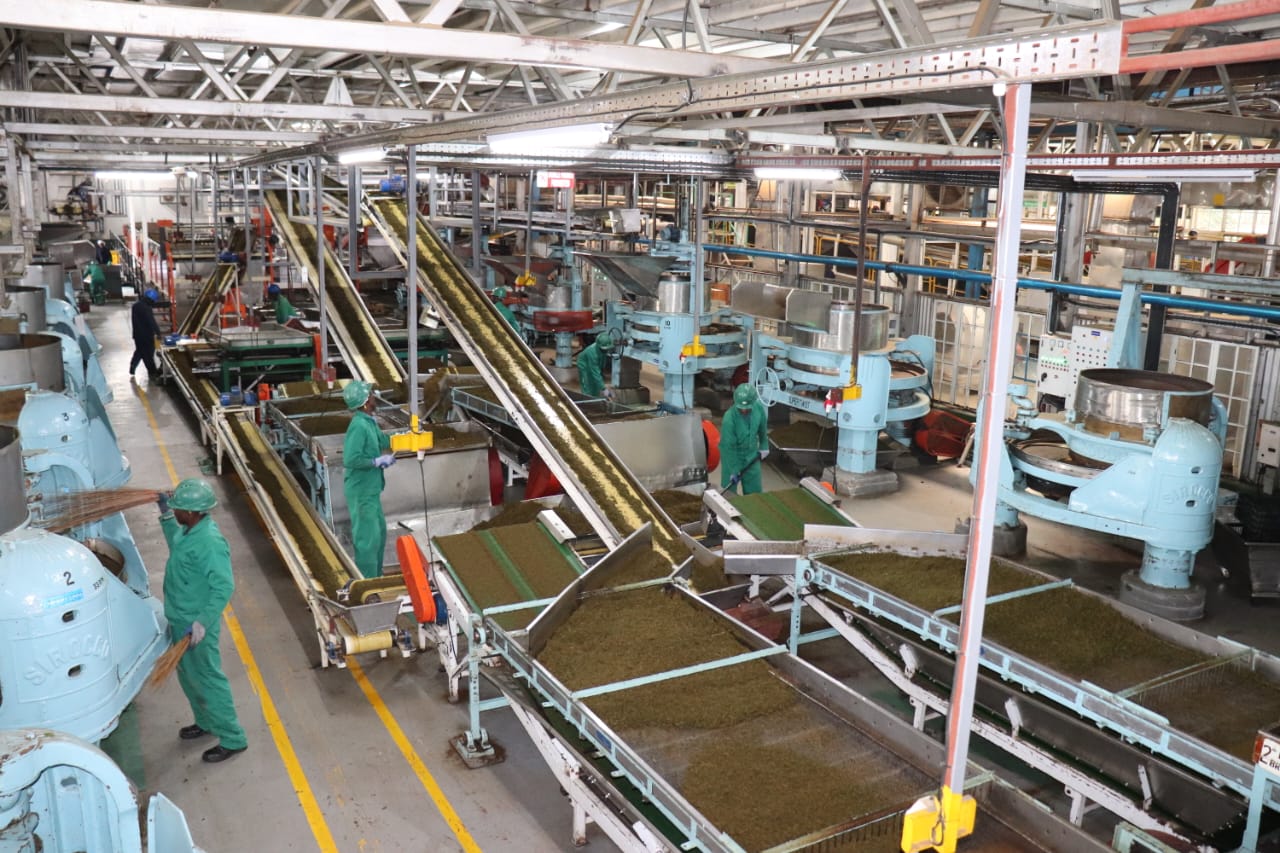
 Workers at Browns Plantations at work./HANDOUT
Workers at Browns Plantations at work./HANDOUT
The move marks a significant shift towards high-value specialty teas and strengthening Kenya’s position in the global premium tea market.
The new line, launched under the Milima mark, increases the factory’s capacity to 3 million kilogrammes of Orthodox tea per year.
The move reflects a deliberate investment in premium production, targeting international buyers who pay far more for specialty teas than for bulk CTC varieties.
According to market data contained in the report, Orthodox teas often fetch between $3 and $10 per kilogramme at specialty auctions.
This compares to an average of $2.28 per kilogramme for traditional CTC teas, which dominate Kenya’s tea exports.
Browns Plantations Kenya CEO Dushanth Ratwatte said the expansion signals a clear focus on value addition.
“Our investment in Orthodox tea capacity is a strategic decision to maximize the value of tea grown in Africa,” he said.
He added that the company plans to continue increasing capacity across its factories.
“By expanding our Kitumbe Factory and commissioning more additional capacity in other factories along the way, we enhance product quality and market competitiveness. This benefits our customers with premium products, uplifts local smallholder farmers, supports their livelihoods, and contributes to the sustainable growth of the Kenyan tea industry.”
The milestone comes shortly after the Milima Estate Black Orthodox (OP) Tea secured 2nd Place at the Gold Medal Tea Awards during the North American Tea Conference.
The recognition affirms Kenya’s growing influence in the specialty tea space.
Browns Plantations Kenya is drawing on extensive expertise from its parent company’s Sri Lankan operations.
Sri Lanka is world-renowned for Orthodox tea, and the report notes that Browns has long been a pioneer in cultivating and processing specialty varieties.
This experience has enabled the Kenyan subsidiary to implement modern agronomic practices, strong quality control systems, and advanced processing technologies.
By transferring this knowledge to its Kenyan estates, the company aims to grow its premium tea portfolio while offering consistent quality required by global buyers.
The strategy is also expected to benefit smallholder farmers who supply part of the leaf, through training and improved farming practices.
The expansion aligns with broader changes in the Kenyan tea sector, including the recent launch of the East African Tea Trade Association’s Orthodox Tea Auction.
The development gives Kenya an opportunity to compete more effectively with traditional Orthodox producers in Asia.
Browns Plantations Kenya produces a range of teas, including CTC, Orthodox black and green teas, and purple tea.
Its products are exported to key markets such as the UK, Egypt, Pakistan, and the United States. Some of its specialty brands — including Chemase, Milima, and Bondet and Masingi — are highly sought after globally.
The company operates more than 5,000 hectares of tea and 2,000 hectares of forestry, with four factories and nine estates.
It is co-owned by the local community, which holds a 15 percent stake through the Kipsigis Highlands Multipurpose Cooperative Society.
The report notes that Browns Plantations integrates sustainability, community empowerment, and responsible environmental practices across its operations.
With the new Kitumbe line now operational, Browns Plantations Kenya says it is entering a new era of premium production aimed at cementing Kenya’s place in the global Orthodox tea market.

















